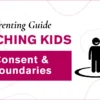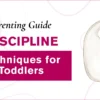One of the biggest challenges or dilemmas we faced in our time, and now our kids are also facing, is that we were heroes in school and zeroes in actual life. Our education system is producing students who are ace in algebra but panic over a flat tire. Our graduates excel while essay writing, yet baffle by a tax form. No doubt schools and colleges are pouring energy into academics. But they often sidestep the practical skills that shape confident, capable adults. Life skills, from budgeting to navigating online spaces, are the unsung heroes of personal success, yet they’re rarely taught. This oversight leaves young people scrambling to learn on their own, sometimes at great cost. As a parent, I’ve watched kids stumble through these gaps, and it’s clear: education must evolve to prepare students holistically.
This guide dives into 18 life skills that should be woven into primary, secondary, and college curricula, tailored to each stage of growth. From teaching young children to wash their hands properly to guiding college students through job interviews, these skills build independence and resilience. For parents exploring homeschooling, our companion blog, “Essential Life Skills for Homeschooling Students”, offers tailored strategies. With a mix of practical tips, real-life stories, and research, let’s explore how life skills can transform education, empowering students worldwide to thrive beyond the classroom.
Primary Education: Laying the Groundwork
Primary years are magic—kids soak up habits like sponges. Teaching life skills early plants seeds for growth, from hygiene to teamwork. Here are six skills to shape young learners.
1. Personal Hygiene
Hygiene is something very basic to start with. It is not just clean hands, infact it’s a package. It is related tot self-respect. Kids who learn to brush their teeth or comb their hair feel more confident and proud. Eventually, it keeps them healthy. Schools can make it fun: think handwashing races with bubbly soap, or a “smile check” for dental care. I remember a kindergartner, all grins, showing off his “sparkly teeth” after a class demo with a giant toothbrush model. That pride sticks. Teachers can use charts or songs, while parents can reinforce at home—check our homeschooling guide for ideas. Hygiene builds confidence, setting kids up for social success.
2. Basic Household Skills
Sweeping a floor or sorting laundry might sound mundane, but for kids, it’s a badge of honor. These tasks teach responsibility and teamwork. Schools can weave chores into routines, like tidying desks or watering plants. One first-grader I knew glowed when trusted to stack chairs after art class; he rushed home to “help” with dishes. Role-playing chores or rewarding effort makes it engaging. Household skills foster a work ethic, preparing kids for bigger responsibilities.
3. Communication
Kids need to share thoughts clearly—whether asking for help or saying “sorry.” Communication builds trust and friendships. Schools can use story circles, where kids share a favorite moment, or puppet shows to practice greetings. A shy third-grader I saw blossomed after role-playing a “lost toy” scenario, learning to speak up. Teachers can model active listening, nodding along. This skill, vital for teamwork, grows richer in secondary years.
4. Teamwork
Working together is a superpower for kids. Group projects, like crafting a class banner, teach sharing and compromise. I watched a group of second-graders bicker over paint colors, then unite to create a rainbow mural, cheering each other on. Schools can set clear roles and celebrate collective wins. Teamwork sparks collaboration, a skill that shines in later academics and careers. Parents can nurture it through family tasks, as our homeschooling blog explores.
5. Emotional Intelligence and Resilience
Kids feel big emotions—joy, anger, sadness. Helping them name and handle these builds resilience. Schools can use storybooks about feelings or “calm corners” for deep breaths. A fourth-grader I knew, upset over a playground spat, learned to say, “I’m mad, but I’ll talk later,” thanks to a teacher’s guidance. Class talks on bouncing back from mistakes make it real. This foundation prepares teens for deeper emotional challenges.
6. Digital Literacy and Safety (Primary Level)
Even little ones use tablets, so teaching safe digital habits is a must. Kids need to spot safe websites and know screen-time limits. Schools can use cartoons showing “red flags” online, like pop-ups asking for names. A second-grader I met proudly told her mom, “I didn’t click that ad—it looked fishy!” after a class game. Lessons on password basics or “stranger danger” online keep it simple. This skill grows critical as kids hit secondary school.
Secondary Education: Shaping Independence
Teens are at a crossroads—craving freedom but needing guidance. Secondary school is prime time to teach skills for navigating life’s complexities. Here are seven skills to empower them.
1. Social Skills and Relationship Building
Teens live for friends, but relationships can be tricky. Learning empathy, conflict resolution, and respect strengthens bonds. Schools can host peer circles or role-plays on handling gossip. I recall a ninth-grader who patched things up with a friend after practicing “I feel” statements in class; their hug said it all. Teachers can guide discussions on trust or bullying. These skills, building on primary communication, boost social confidence.
2. Time Management
With homework, sports, and social plans, teens juggle a lot. Time management keeps them grounded. Schools can teach planners or apps, showing how to prioritize. A tenth-grader I knew, swamped by exams, made a color-coded schedule and aced her tests, beaming with relief. Workshops on breaking tasks into chunks make it practical. Time management sets teens up for college and beyond.
3. Decision Making
Teens face choices daily—friends, activities, risks. Teaching them to weigh options builds wisdom. Scenario games, like choosing between studying or partying, spark discussion. I saw an eleventh-grader pick a volunteer role over a party after a class debate, later thanking her teacher for the clarity. Schools can use flowcharts or pros/cons lists. This skill ties to critical thinking, guiding teens toward smart choices.
4. Critical Thinking
In a world of fake news, teens need to think sharply. Critical thinking—spotting biases, checking sources—guards against misinformation. Debates or news analysis projects teach scrutiny. A twelfth-grader I met debunked a viral health claim for a class assignment, earning applause. Teachers can challenge assumptions through open questions. Critical thinking preps teens for college rigor.
5. Learning Strategies
Studying smarter, not harder, unlocks potential. Note-taking, summarizing, or mind-mapping boosts retention. Schools can offer study bootcamps, showing techniques like flashcards. A struggling eighth-grader I knew turned her grades around with Cornell notes, her smile infectious. Peer study groups reinforce habits. These strategies ensure lifelong learning success.
6. Adaptability
Change is constant—new schools, friendships, or plans. Adaptability helps teens roll with it. Role-plays, like adjusting to a canceled event, teach flexibility. I saw a seventh-grader pivot from a rained-out picnic to a board game day, laughing it off. Schools can share stories of resilience, like athletes overcoming injuries. Adaptability, paired with decision-making, equips teens for uncertainty.
7. Digital Literacy and Safety (Secondary Level)
Teens are glued to social media, so digital smarts are non-negotiable. They need to protect privacy, avoid scams, and post respectfully. Schools can run workshops on strong passwords or spotting phishing. A tenth-grader I knew locked down her Instagram after a class on digital footprints, dodging a creepy follower. Lessons on ethical commenting or data leaks hit home. This skill evolves into college-level professionalism.
College Education: Launching into Adulthood
College students are steps from independence, needing skills to tackle finances, jobs, and digital professionalism. These six skills ensure they’re ready.
1. Financial Literacy
Money management is freedom. Budgeting, saving, and avoiding debt set students up for stability. Mock budgets for rent or groceries make it real. I knew a freshman who saved for a laptop by cutting coffee runs, thrilled at her discipline. Schools can use apps like Mint in classes. Financial literacy is a lifelong gift, easing adult stress.
2. Tax Basics
Taxes intimidate, but basics empower. Teaching forms, deductions, and deadlines builds confidence. Simulated filings, like a W-2 walkthrough, clarify the process. A senior I met filed her first return error-free after a tax workshop, grinning like she’d cracked a code. Schools can partner with accounting clubs. This skill pairs with financial literacy for independence.
3. Job Search Skills
Landing a job takes more than a degree. Resume crafting, interviewing, and networking open doors. Mock interviews or career fairs prep students. A junior I saw nailed a summer job after practicing her handshake and pitch, her joy palpable. Schools can teach LinkedIn basics too. Job search skills launch careers, building confidence.
4. Basic Digital Skills
Spreadsheets, slides, and docs are workplace staples. Mastering Excel or Google Sheets boosts employability. Projects like budget trackers teach formulas. A student I knew impressed a boss with a sales chart in Excel, landing a promotion. Schools can offer software bootcamps. This skill supports job search success.
5. Negotiation
Negotiating salaries or schedules shows self-worth. Learning to listen and propose win-win deals builds confidence. Role-plays, like salary talks, prepare students. I saw a graduate negotiate a flexible internship, her calm assertiveness inspiring. Schools can use case studies. Negotiation shapes professional and personal growth.
6. Digital Literacy and Safety (College Level)
College students need digital professionalism—secure accounts, polished profiles. Cybersecurity lessons, like two-factor authentication, protect data. A senior I knew revamped her LinkedIn after a class, snagging an interview. Workshops on phishing or personal branding prepare them for work. This skill, built from secondary lessons, ensures career readiness.
Conclusion
Life skills aren’t extras—they’re essentials. From hygiene to negotiation, these 18 skills bridge the gap between academics and real life, fostering resilient, independent adults. Schools and colleges must embrace them, using hands-on lessons to spark growth. ParentsFor Parents can amplify this at home, as our guide “Essential Life Skills for Homeschooling Students” shows. I’ve seen kids light up learning these skills, and it’s a reminder: education is about thriving, not just surviving. Share your must-have life skills below—let’s inspire change together.












